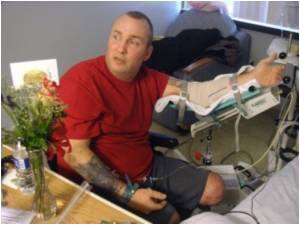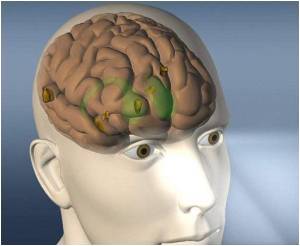Scientists have conducted a trial of a brain-computer interface that allows paralysed patients to play music with brainpower alone.

This computer-music system interacts directly with the user's brain, by picking up the tiny electrical impulses of neurons. Composer and computer-music specialist Eduardo Miranda of the University of Plymouth, UK, working with computer scientists at the University of Essex, have developed the device.
It should eventually help people with severe physical disabilities, caused by brain or spinal cord injuries to make music for recreational or therapeutic purposes.
Miranda and his colleagues have used one of the oldest of these systems: electroencephalography (EEG), in which electrodes on the skull pick up faint neural signals.
The EEG signal can be processed quickly, allowing fast response times, and the instrument is cheaper and more portable than brain-scanning techniques such as magnetic resonance imaging and positron-emission tomography.
Previous efforts using BCIs have focused on moving computer screen icons such as cursors, but Miranda's team sought to achieve the much more complex task of enabling users to play and compose music.
Advertisement
The trick is to teach the user how to associate particular brain signals with specific tasks by presenting a repeating stimulus - auditory, visual or tactile - and getting the user to focus on it. This elicits a distinctive, detectable pattern in the EEG signal.
With a little practice, this allowed users to create a melody as if they were selecting keys on a piano. And, as with learning an instrument, say the researchers, "the more one practices the better one becomes".
The findings have been published in the journal Music and Medicine1.
Source-ANI









